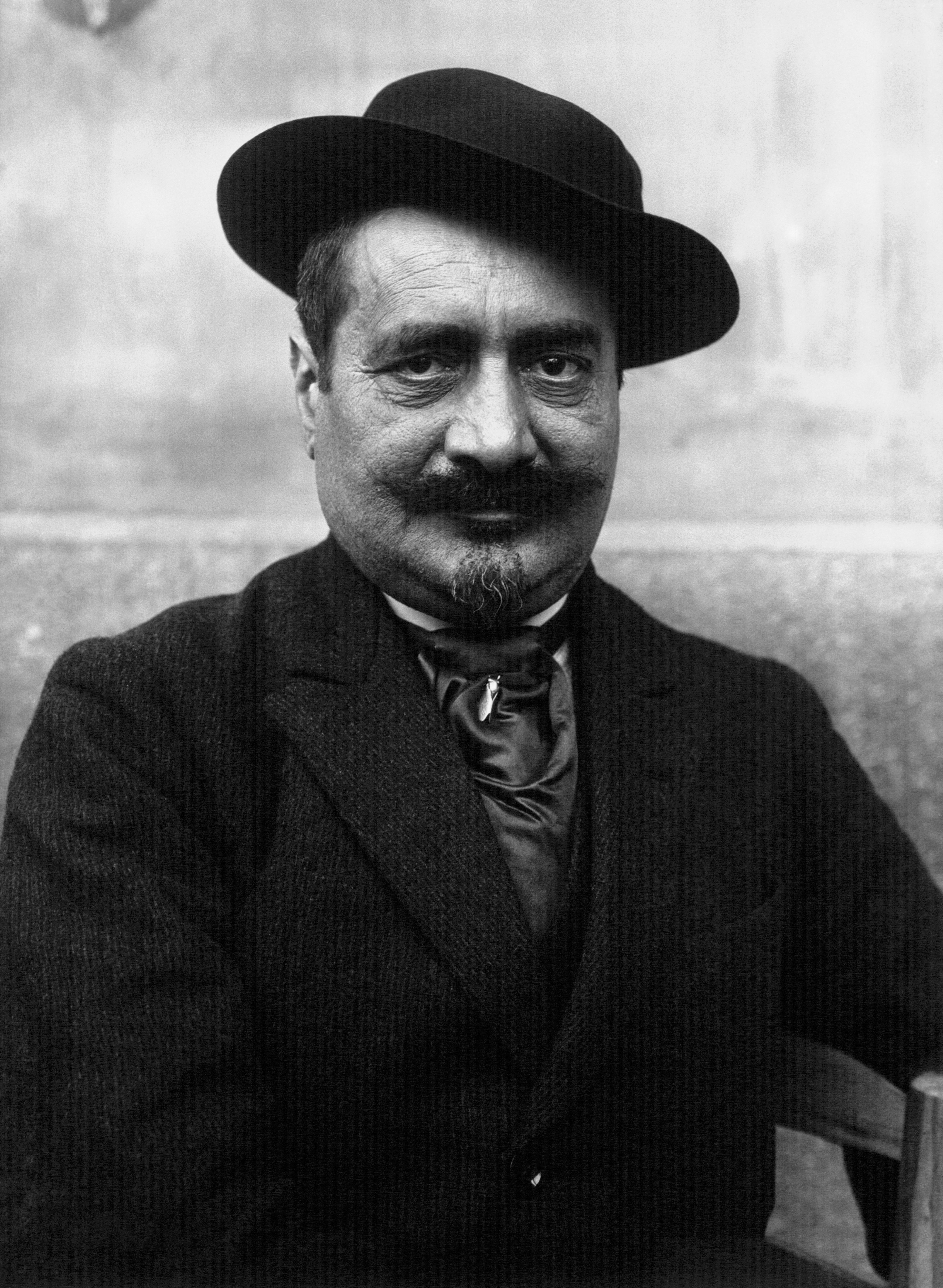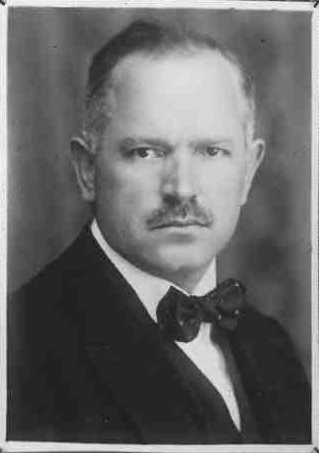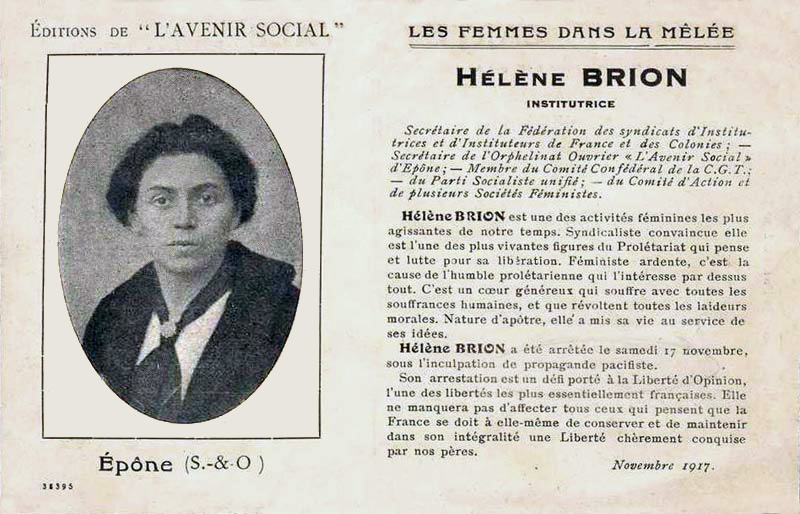|
Alphonse Merrheim
Alphonse Adolphe Merrheim (7 May 1871 – 23 October 1923) was a French copper smith and trade union leader. Early years Alphonse Adolphe Merrheim was born on 7 May 1871 in La Madeleine, Nord, a suburb of Lille. He became a coppersmith, and adopted revolutionary syndicalist views. He arrived in Paris in 1904, and soon after met Pierre Monatte at the office of ''Pages Libres''. The two men would work together to launch '' La Vie Ouvrière (The Worker's Life)''. Bourchet was secretary of the copper workers' union, and when it merged with the metalworker's union, he became head of the combined union. Bourchet resigned abruptly, and Merrheim was persuaded to take on the leadership. He became secretary of the ''Fédération des Métaux'' (Federation of metalworkers) in 1905. Merrheim was immediately thrown into dealing with strikes at Cluses, Hennebont and Meurthe-et-Moselle. He discovered the power of the employers and the need to strengthen the labor unions and to coordinate the diff ... [...More Info...] [...Related Items...] OR: [Wikipedia] [Google] [Baidu] |
La Madeleine, Nord
La Madeleine () is a commune in the Nord department in northern France. It is a suburb of the city of Lille, bordering it on its north side. Heraldry History In 1944, Pierre Marchant and Lucien Olivier, two members of the French resistance from La Madeleine, were killed near Hill 60 (Ypres) by Germans. Population Education Schools in the commune: * Public preschools (''écoles maternelles''): Anne Frank, Courbet, d'Hallendre, du Moulin - Alphonse Daudet, and Gaston LeclercqMaternelles et élémentaires " La Madeleine, Nord. Retrieved on September 4, 2016. * Public elementary schools: , Louise de Bettignies, Kléber, and Edmond Rostand * Private prescho ... [...More Info...] [...Related Items...] OR: [Wikipedia] [Google] [Baidu] |
Louis Bouët
Louis Bouët (6 April 1880 - 9 July 1969) was a French teacher and anarcho-syndicalist. He played a leading role in the National Federation of Teachers' Unions and in the socialist party. He was briefly a member of the steering committee of the French Communist Party. For many years he edited the pedagogical review '' L'Ecole Emancipée'' (The Emancipated School), which he had founded. Early years Louis Bouët was born on 6 April 1880 in Montfaucon-sur-Moine, Maine-et-Loire, from Cholet. His father was a shoemaker and café operator, with little money and less faith. A great uncle in the church offered to pay his fees if he entered the minor seminary to become a priest, but Bouët was not a believer and wanted to become a teacher. He managed to gain admission in 1897 to the ''École normale'' in Angers. He was influenced by the headmaster who was a socialist and supporter of Dreyfus. After leaving school Bouët was assigned to Trélazé and then Saumur, where he stayed for t ... [...More Info...] [...Related Items...] OR: [Wikipedia] [Google] [Baidu] |
Jean Longuet
Jean-Laurent-Frederick Longuet (5 October 1876 – 11 September 1938) was a French socialist politician and journalist. He was Karl Marx's grandson. Early years Jean, often called 'Johnny' as a boy by his family, was born in London on October 5, 1876, the son of Charles and Jenny Longuet. He was their second son, and the eldest who survived to adulthood. The family often visited Jenny's father, Karl Marx, who liked to play with his grandchildren. The Longuet family moved to France in February 1881. In summer 1882 Karl Marx stayed with the Longuets for three months, being joined by Jean's aunt Eleanor Marx. By this time Jenny was suffering from bladder cancer, and would die a year later. To ease the burden on the family, Eleanor took Jean back to England in August 1882, promising to educate and discipline him. They became close, with Eleanor thinking of him as ‘my boy’. On his return to France, Jean lived for a time with his father's family in Caen to continue his studies. ... [...More Info...] [...Related Items...] OR: [Wikipedia] [Google] [Baidu] |
Alexandre Blanc
Alexandre Marius Henri Blanc (14 September 1874 - 26 August 1924) was a French schoolteacher, socialist and national deputy. He belonged to the left wing of the socialist party, and during World War I was pacifist. After the war he was one of the founders of the French Communist Party. Early years Alexandre Marius Henri Blanc was born in Camps-la-Source, Var, on 14 September 1874. He studied at the ''Ecole normale'' in Avignon. He was appointed a teacher in Monteux, Vaucluse. In 1902 he was elected a member of the departmental council of primary education. Blanc was elected a national deputy for Orange, Vaucluse in the second round of the general election of 6 and 20 May 1906, running on the platform of the Socialist Unity Party. In the 1910 election, running for the same district and platform, he was defeated and returned to teaching and to activism in the socialist federation of Vaucluse. World War I In the 26 April and 10 May 1914 general elections Alexandre Blanc regained h ... [...More Info...] [...Related Items...] OR: [Wikipedia] [Google] [Baidu] |
Section Française De L'Internationale Ouvrière
The French Section of the Workers' International (french: Section française de l'Internationale ouvrière, SFIO) was a political party in France that was founded in 1905 and succeeded in 1969 by the modern-day Socialist Party. The SFIO was founded during the 1905 Globe Congress in Paris as a merger between the French Socialist Party and the Socialist Party of France in order to create the French section of the Second International, designated as the party of the workers' movement. The SFIO was led by Jules Guesde, Jean Jaurès (who quickly became its most influential figure), Édouard Vaillant and Paul Lafargue (Karl Marx's son in law), and united the Marxist tendency represented by Guesde with the social-democratic tendency represented by Jaurès. The SFIO opposed itself to colonialism and to militarism, although the party abandoned its anti-militarist views and supported the national union government (french: link=no, Union nationale) facing Germany's declaration of war on F ... [...More Info...] [...Related Items...] OR: [Wikipedia] [Google] [Baidu] |
Kienthal
Reichenbach im Kandertal is a village and municipality in the Frutigen-Niedersimmental administrative district in the canton of Bern in Switzerland. Until 1957 it was known as Reichenbach bei Frutigen. Besides the village of Reichenbach, the municipality includes several other settlements, including Aris, Faltsche, Griesalp, Kien, Kiental, Ramslauenen, Reudlen, Scharnachtal, Schwandi and Wengi. Additionally, the village of Mülenen is shared between Reichenbach and Aeschi bei Spiez municipalities. The area played a notable role in world history when the Kienthal Conference was held at Kiental (then known as Kienthal) in 1916. The blazon of the municipal coat of arms is ''Argent a Bear Paw issuant from a Mount of 3 Coupeaux Vert.'' History Reichenbach im Kandertal is first mentioned about 1320 as ''Richenbach''. During the Middle Ages, the village occupied a strategic location on the trade route into the Canton of Valais. Two castles, Mülenen Castle, with the Letzi Mülene ... [...More Info...] [...Related Items...] OR: [Wikipedia] [Google] [Baidu] |
Robert Grimm
Robert Grimm (16 April 1881, in Wald – 8 March 1958) was the leading Swiss Socialist politician during the first half of the 20th century. As a leading member of the Social Democratic Party of Switzerland he opposed the First World War. Grimm was the main organiser of the Zimmerwald Movement and the chairman of the International Socialist Commission in Bern 1915–1917. After the Grimm–Hoffmann Affair he had to resign from this function. Grimm was the leader of the Swiss general strike in November 1918. The demands of the strike included the 48-hour working week, old-age pensions and women suffrage. Grimm was among the founders of the 2½ International. He held various parliamentary seats and executive functions from communal to federal level between 1909–1955. In 1946 he became President of the Swiss National Council The President of the National Council of Switzerland (german: Nationalratspräsident; french: Président du Conseil national, it, Presidente del C ... [...More Info...] [...Related Items...] OR: [Wikipedia] [Google] [Baidu] |
Vladimir Lenin
Vladimir Ilyich Ulyanov. ( 1870 – 21 January 1924), better known as Vladimir Lenin,. was a Russian revolutionary, politician, and political theorist. He served as the first and founding head of government of Soviet Russia from 1917 to 1924 and of the Soviet Union from 1922 to 1924. Under his administration, Russia, and later the Soviet Union, became a one-party socialist state governed by the Communist Party. Ideologically a Marxist, his developments to the ideology are called Leninism. Born to an upper-middle-class family in Simbirsk, Lenin embraced revolutionary socialist politics following his brother's 1887 execution. Expelled from Kazan Imperial University for participating in protests against the Russian Empire's Tsarist government, he devoted the following years to a law degree. He moved to Saint Petersburg in 1893 and became a senior Marxist activist. In 1897, he was arrested for sedition and exiled to Shushenskoye in Siberia for three years, where he married ... [...More Info...] [...Related Items...] OR: [Wikipedia] [Google] [Baidu] |
Zimmerwald Conference
The Zimmerwald Conference was held in Zimmerwald, Switzerland, from September 5 to 8, 1915. It was the first of three international socialist conferences convened by anti-militarist socialist parties from countries that were originally neutral during World War I. The individuals and organizations participating in this and subsequent conferences held at Kienthal and Stockholm are known jointly as the Zimmerwald movement. The Zimmerwald Conference began the unraveling of the coalition between revolutionary socialists (the so-called Zimmerwald Left) and reformist socialists in the Second International. Background Socialist discussions on war When the Second International, the primary international socialist organization before World War I, was founded in 1889, internationalism was one of its central tenets. "The workers have no Fatherland", Karl Marx and Friedrich Engels had declared in ''The Communist Manifesto''. Paul Lafargue, Marx's son-in-law, in his keynote address at the ... [...More Info...] [...Related Items...] OR: [Wikipedia] [Google] [Baidu] |
Union Sacrée
The Sacred Union (french: Union Sacrée, ) was a political truce in France in which the left-wing agreed, during World War I, not to oppose the government or call any strikes. Made in the name of patriotism, it stood in opposition to the pledge made by the French Section of the Workers' International (SFIO) internationalism, and its former leader Jean Jaurès, not to enter any "bourgeois war." Although an important part of the socialist movement joined the ''Union sacrée'', some trade unionists such as Pierre Monatte opposed it. On 3 August 1914, Germany declared war on France. The next day, Prime Minister Rene Viviani read an address written by the President of the French Republic, Raymond Poincaré: :' :("In the coming war, France will be heroically defended by all its sons, whose sacred union will not break in the face of the enemy"). This political movement may have been an attempt to create solidarity during a time when the largely pacifist French Socialist Party threatened ... [...More Info...] [...Related Items...] OR: [Wikipedia] [Google] [Baidu] |
Hélène Brion
Hélène Brion (27 January 1882 – 31 August 1962) was a French teacher, feminist, socialist and communist. She was one of the leaders of the French teachers' union. During World War I (1914–18) she was arrested for distributing pacifist propaganda, given a suspended sentence and dismissed from her job as a teacher. She visited Russia soon after the Russian Revolution, and wrote a book on her experiences. It was never published. She devoted much of her effort in later years to preparing a feminist encyclopedia, which was never completed or published. Early years Hélène Brion was born in Clermont-Ferrand, Auvergne on 27 January 1882. Her family were teachers. She was orphaned when very young, and spent her childhood in the Ardennes with her grandmother. She studied at the Ecole Primaire Supérieure Sophie Germain in Paris to become a teacher. Unions had been authorized in 1884, but state employees could not belong to them. They could however join friendly societies. Brion was ... [...More Info...] [...Related Items...] OR: [Wikipedia] [Google] [Baidu] |
Marthe Bigot
Marthe Bigot (1878–1962) was a French primary schoolteacher, feminist, pacifist and communist. Early years Marthe Bigot was born in 1878, the daughter of a baker. She became a primary schoolteacher in Paris. In 1907 the International Socialist Conference of Stuttgart forbade socialist women from collaborating with "bourgeois" feminists. Bigot, Madeleine Pelletier and Hélène Brion resisted this decision. While belonging to the extreme left, they tried to maintain radical feminism. They took a pacifist position in World War I (1914–18). As an ''institutrice'' Bigot and other feminist teachers including Marthe Pichorel and Marie Guillot were investigated and strongly reprimanded for their pacifist attitudes. Bigot was not dismissed, as were Hélène Brion and Lucie Colliard. The ''Comité d'Action Suffragiste'' (CAS) was created in December 1917, directed by Jeanne Mélin, Marthe Bigot and Gabrielle Duchêne. The CAS organized meetings to which they tried to attract w ... [...More Info...] [...Related Items...] OR: [Wikipedia] [Google] [Baidu] |






